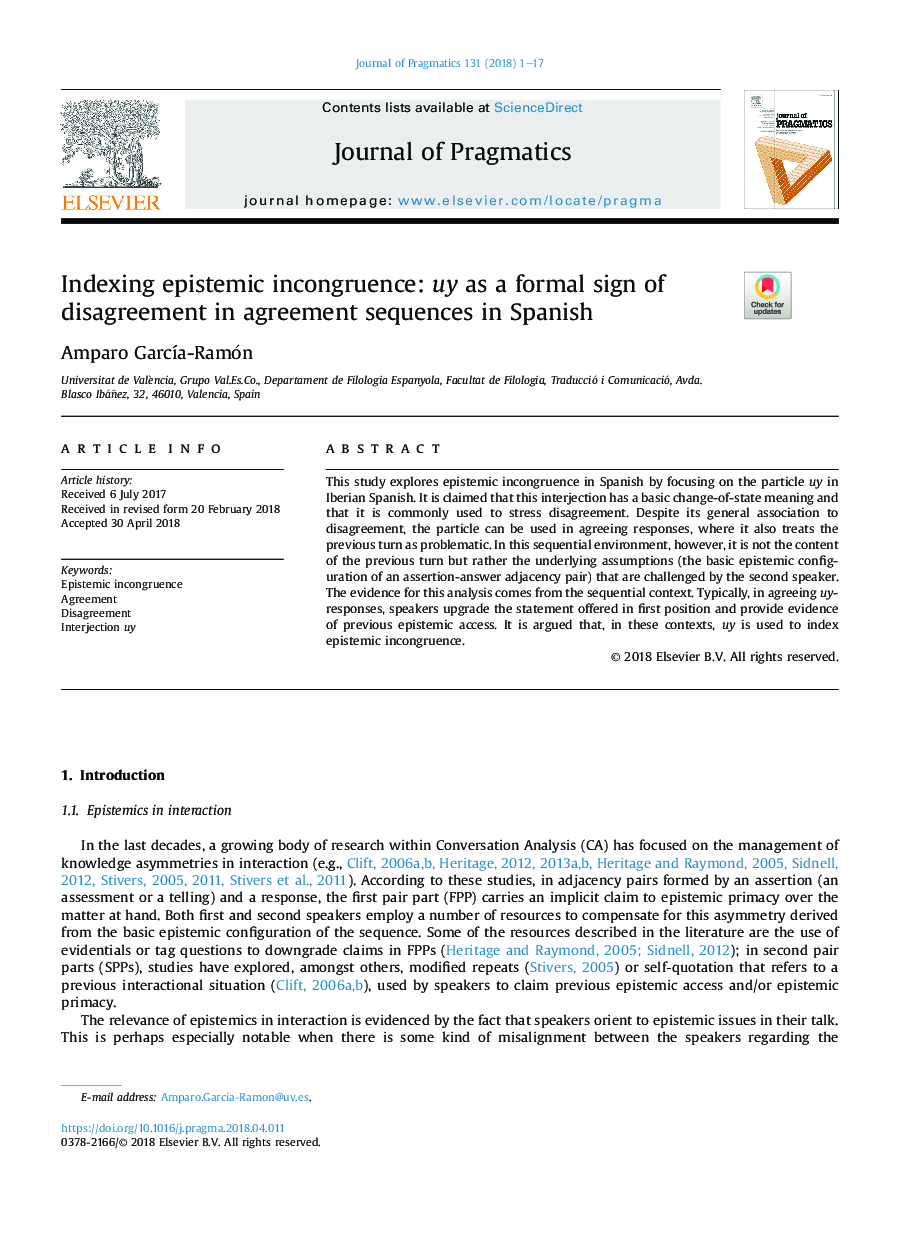| Article ID | Journal | Published Year | Pages | File Type |
|---|---|---|---|---|
| 7297271 | Journal of Pragmatics | 2018 | 17 Pages |
Abstract
This study explores epistemic incongruence in Spanish by focusing on the particle uy in Iberian Spanish. It is claimed that this interjection has a basic change-of-state meaning and that it is commonly used to stress disagreement. Despite its general association to disagreement, the particle can be used in agreeing responses, where it also treats the previous turn as problematic. In this sequential environment, however, it is not the content of the previous turn but rather the underlying assumptions (the basic epistemic configuration of an assertion-answer adjacency pair) that are challenged by the second speaker. The evidence for this analysis comes from the sequential context. Typically, in agreeing uy-responses, speakers upgrade the statement offered in first position and provide evidence of previous epistemic access. It is argued that, in these contexts, uy is used to index epistemic incongruence.
Keywords
Related Topics
Social Sciences and Humanities
Arts and Humanities
Language and Linguistics
Authors
Amparo GarcÃa-Ramón,
